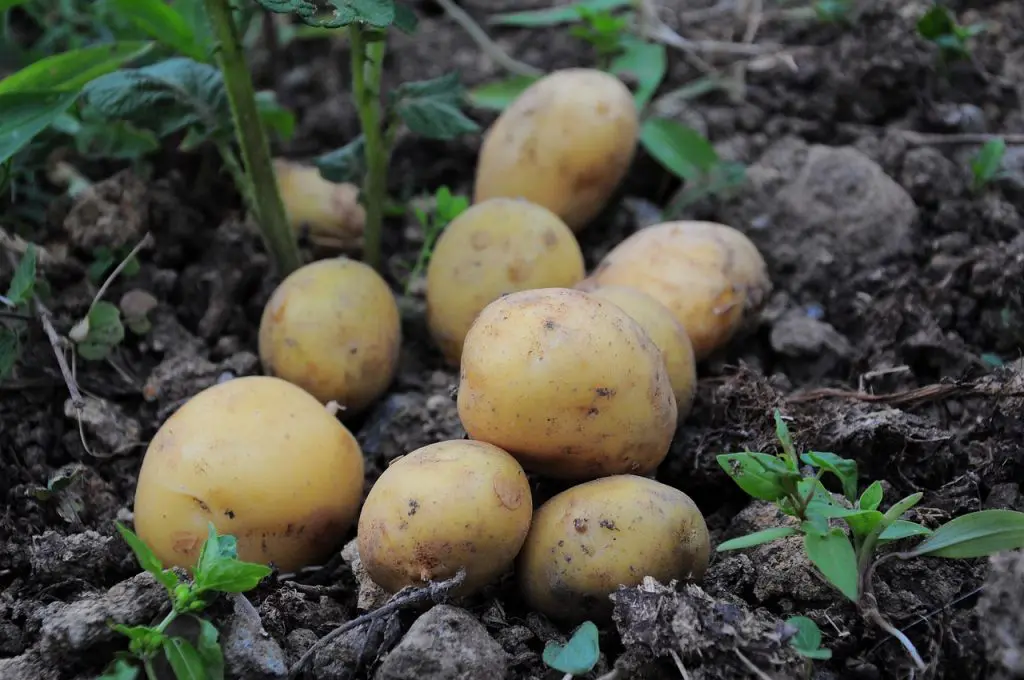
EU Funds AI-Powered Initiative to Support Sustainable Potato Farming The European potato sector is undergoing a digital transformation, thanks to a new AI-powered initiative designed to support regenerative agriculture and reduce chemical use, without compromising yield or quality. Backed by a £700,000 grant from the European Institute of Innovation and Technology (EIT) Food Innovation Agency, […]
The European potato sector is undergoing a digital transformation, thanks to a new AI-powered initiative designed to support regenerative agriculture and reduce chemical use, without compromising yield or quality. Backed by a £700,000 grant from the European Institute of Innovation and Technology (EIT) Food Innovation Agency, this project marks a significant step toward more sustainable crop management across Europe.
While potatoes are a low-carbon crop compared to others, their production can still contribute significantly to environmental degradation if not managed properly. Overreliance on chemical fungicides (particularly for late blight) and heavy tillage practices can lead to soil erosion, pesticide runoff, and reduced soil biodiversity.
Blight, for example, is the most serious disease affecting potatoes in Europe. Traditional management relies heavily on fungicides, many of which are under increasing regulatory scrutiny. AI-supported regenerative strategies offer a potential pathway to reduce reliance on these inputs.
Led by UK-based agritech company Cropin, the project is officially titled FIRST Potato – Field Intelligence for Regenerative Agriculture and Sustainability in Potato Farming. The initiative will use cutting-edge artificial intelligence (AI) and real-time field data to support farmers transitioning to regenerative practices, a system that prioritises soil health, biodiversity, and long-term resilience.
Cropin is working with a consortium of food processors, researchers, and sustainability leaders to roll out this AI platform across the European potato farming community.
The project aims to support growers in maintaining consistent yields and quality (such as dry matter content) while reducing inputs like fungicides, which are commonly used to control blight.
Sensor Integration: Gathering real-time data from fields, including soil moisture and temperature.
Satellite and Weather Data: Incorporating remote sensing and climate information to deliver accurate forecasts and advisories.
Predictive Analytics: Offering decision-support tools to help farmers manage inputs like irrigation and residue with greater precision.
The goal is to deliver plot-specific daily recommendations tailored to local conditions, helping farmers optimise yield, reduce costs, and minimise environmental impact.
The EU’s Farm to Fork Strategy (a core component of the European Green Deal) sets ambitious targets, including:
Reducing pesticide use by 50% by 2030
Increasing organic farming to 25% of total farmland
Reducing nutrient losses by at least 50%
Projects like FIRST Potato are critical in making these goals achievable. By offering farmers practical tools to shift practices without sacrificing yield, they help bridge the policy-practice gap.
While regenerative farming is gaining attention for its environmental benefits, transitioning from conventional methods often leads to initial yield reductions. Cropin’s CEO, Krishna Kumar, explains the role of AI in this transition:
“As regenerative agriculture gains momentum, the absence of verifiable, measurable outcomes poses a real challenge to meaningful, scalable impact […] Through AI, data intelligence, and real-time decision-support, we are bridging this critical gap, bringing precision, accountability, and scale to regenerative agriculture.”
There are several benefits this initiative has:
Support in adopting regenerative methods while maintaining commercial viability.
Clear, data-driven recommendations tailored to specific farm conditions.
Reliable data to verify sustainability claims.
Consistency in product quality for processors (e.g., for crisps and chips).
Reduced chemical inputs.
Enhanced soil and water management.
Lower greenhouse gas emissions.
This AI-powered solution represents a scalable model for modern, sustainable farming in Europe. While regenerative systems often require years to fully stabilise yields, this technology aims to accelerate adoption by providing clear, evidence-based guidance from day one.
With ongoing support from EIT Food and engagement from the broader farming community, FIRST Potato could reshape how potatoes are grown, ensuring they are not only profitable, but also aligned with climate and biodiversity goals.
If you’re a potato farmer or involved in agriculture, now is the time to explore how AI can revolutionise your farming practices. Stay informed about the developments in this field, and consider participating in training programs associated with this ground breaking initiative. Together, we can cultivate a greener future for potato farming in Europe.
At All-Ireland Sustainability, we’re committed to building a greener, fairer island, together. Stay informed on the latest environmental initiatives, community action, and policy developments shaping sustainability across Ireland, North and South.
👉 Sign up for our newsletter today and be the first to hear about upcoming events, expert insights, and ways to get involved.
Whether you’re a seasoned advocate or just starting your journey, new members are always welcome.
Subscribe now and be part of the All-Ireland Sustainability network.